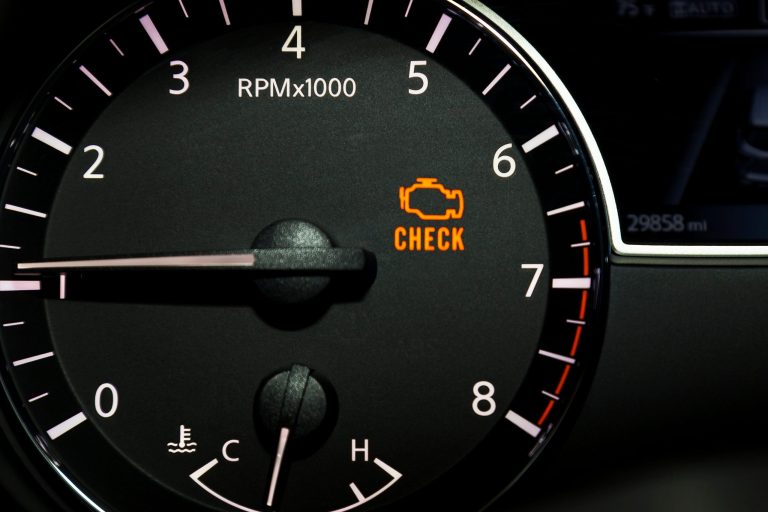SUV Lemon Law
Lemon Law for SUVs

California SUV Lemon Law
California’s SUV Lemon Law is specifically designed to protect consumers who purchase or lease both new and used SUVs that, regrettably, prove to be “lemons.” Here’s a concise overview of its key components:
Covered SUVs: The legislation primarily encompasses new SUVs. Used SUVs still within the umbrella of a manufacturer’s new car warranty may also fall under this protection.
Eligibility Criteria: When the manufacturer or its representatives are unable to rectify a warranty-related issue with an SUV after a “reasonable” number of attempts, the SUV qualifies as a “lemon.” This means that if the defect is significant (meaning it hampers the SUV’s utility, value, or safety), the manufacturer is obligated to either replace the SUV or repurchase it from the consumer.
Determining a “Reasonable” Number of Repair Attempts: A strict definition of what constitutes a “reasonable” number of repair attempts does not exist. However, the law assumes that an SUV is a lemon if, within 18 months or 18,000 miles of purchase:
- The manufacturer has undertaken two or more efforts to rectify a problem that could potentially lead to fatal or severe injury when driving the SUV.
- The manufacturer has made four or more attempts to rectify the same problem.
- The SUV has been out of service for more than 30 days (not necessarily consecutively) due to warranty repairs.
Available Remedies: In the event an SUV qualifies as a lemon, the consumer can choose between a refund or receiving a replacement SUV. The refund covers the SUV’s purchase price (minus a minor fee for the consumer’s use of the SUV), along with relevant taxes, license fees, registration fees, and any other official charges. If the consumer opts for a replacement, the original manufacturer must supply a new SUV that is identical or reasonably equivalent to the lemon.
Leased SUVs: The law also extends its provisions to leased SUVs. If a leased SUV is determined to be a lemon, the consumer is eligible for a refund of their down payment and monthly payments, with a deduction for minimal usage fees.
Legal Expenses: In the event that a consumer prevails in a lemon law lawsuit, the manufacturer is obligated to cover the consumer’s attorney fees.
Keep in mind that the legal procedures involved can be intricate, and the information provided here is only a concise summary. If an individual suspects they own a lemon SUV, it is advisable to seek guidance from an attorney who specializes in California’s SUV Lemon Law. Consulting such an attorney will help them comprehend their legal rights and determine the most suitable course of action.
What is the process for initiating a lemon law claim for an SUV in California?
The steps involved in pursuing a lemon law claim for an SUV in California are multifaceted. Here’s a breakdown of the procedure:
- Document the Issues: Begin by meticulously recording all problems and repair attempts. This should encompass dates, descriptions of issues, repair receipts, and all communications with the manufacturer or dealership.
- Review Warranty Terms: Confirm that your SUV falls within the manufacturer’s warranty or an extended warranty, and that the issues you’ve encountered are covered by the warranty.
- Contact the Manufacturer or Dealer: As soon as you identify issues, promptly notify the manufacturer or their authorized dealer. Ensure you keep records of all interactions.
- Consider Arbitration: Depending on your specific circumstances and the manufacturer’s policies, arbitration may be necessary or recommended. Some manufacturers have in-house arbitration programs, and there are also state-administered options. Evaluate whether your situation calls for arbitration.
- Consult a SUV Lemon Law Specialist: If arbitration doesn’t resolve the matter or is not obligatory and you believe you have a valid lemon law claim, engage the services of an attorney specialized in SUV lemon law. They can provide legal guidance, evaluate your claim, and guide you through the process.
- Gather Evidence: Collaborate with your attorney to collect all essential evidence to strengthen your claim, including repair records, communications, and warranty information.
- Issue a Demand Letter: Your attorney may draft and send a demand letter to the manufacturer, outlining the defects, the number of repair attempts, and the request for reimbursement or a replacement SUV.
- Negotiation or Legal Action: Depending on the manufacturer’s response to the demand letter, negotiations may ensue. If no resolution is reached, your attorney may file a lawsuit against the manufacturer.
- Court Proceedings: If your claim proceeds to court, your attorney will represent you, presenting evidence and protecting your rights before a judge or jury.
- Outcome: Winning your case may entitle you to a refund of the SUV’s purchase price (with a usage fee deduction) or a replacement vehicle. Additionally, the manufacturer may be responsible for covering your legal expenses.
- Appeals (if applicable): Either party has the option to challenge the court’s decision if they disagree with the ruling.
Throughout this process, it’s crucial to consult with an experienced SUV lemon law attorney who is well-versed in California’s Lemon Law for SUVs. They can provide personalized guidance and increase the chances of a favorable outcome. Be sure to diligently record all communications and documentation related to your claim, as these serve as vital references and evidence.
FAQs: Answers to Common California SUV Lemon Law Questions:
Do I have to initiate legal proceedings in court for my problematic SUV under the lemon law?
No, it’s not obligatory to pursue court litigation for a lemon SUV. Initially, you can work together with the manufacturer or dealership to explore potential solutions. Many cases find resolution through arbitration or straightforward negotiations. However, if these approaches prove ineffective or unsatisfactory, taking legal action might become necessary. Consulting with an SUV lemon law attorney can guide you toward the most suitable course of action.
Is it necessary to initiate legal action in court for my problematic SUV under the lemon law?
No, resorting to court proceedings for a lemon SUV is not obligatory. Initially, you can work with the manufacturer or dealership to find a resolution. Many cases are resolved through arbitration or straightforward negotiations. However, if these approaches prove ineffective or unsatisfactory, pursuing legal action may become necessary. Consulting with an SUV lemon law attorney can guide you toward the most suitable course of action.
What constitutes a “reasonable” number of repair attempts for a lemon SUV in California?
In California, the criteria for a “reasonable” number of repair attempts for a lemon SUV may vary depending on the circumstances, but there are some standard guidelines: at least two attempts for significant safety concerns or four or more attempts (or if the SUV is out of service for more than 30 days) for other issues. The specific assessment often relies on the unique circumstances. It’s advisable to seek guidance from an SUV lemon law attorney for a thorough evaluation.
Leading California Attorney for SUV Lemon Law
If you believe your SUV falls under California’s Lemon Law, rely on our seasoned SUV Lemon Law Attorney for guidance. We are committed to guiding you through the complex legal process, ensuring the protection of your consumer rights regarding your lemon SUV. Contact us for a consultation without any obligation to delve into the specifics of your case.
Remember, you’re never alone on this journey – we stand ready to support you every step of the way at Lemon Car Boss.
Disclaimer: The contents of this website, including but not limited to text, graphics, images, and other material contained herein (“Content”) are for informational purposes only and do not constitute legal advice. The Content is not intended to be a substitute for professional legal advice, diagnosis, or representation. Always seek the advice of an attorney or other qualified legal provider with any questions you may have regarding a legal issue.









